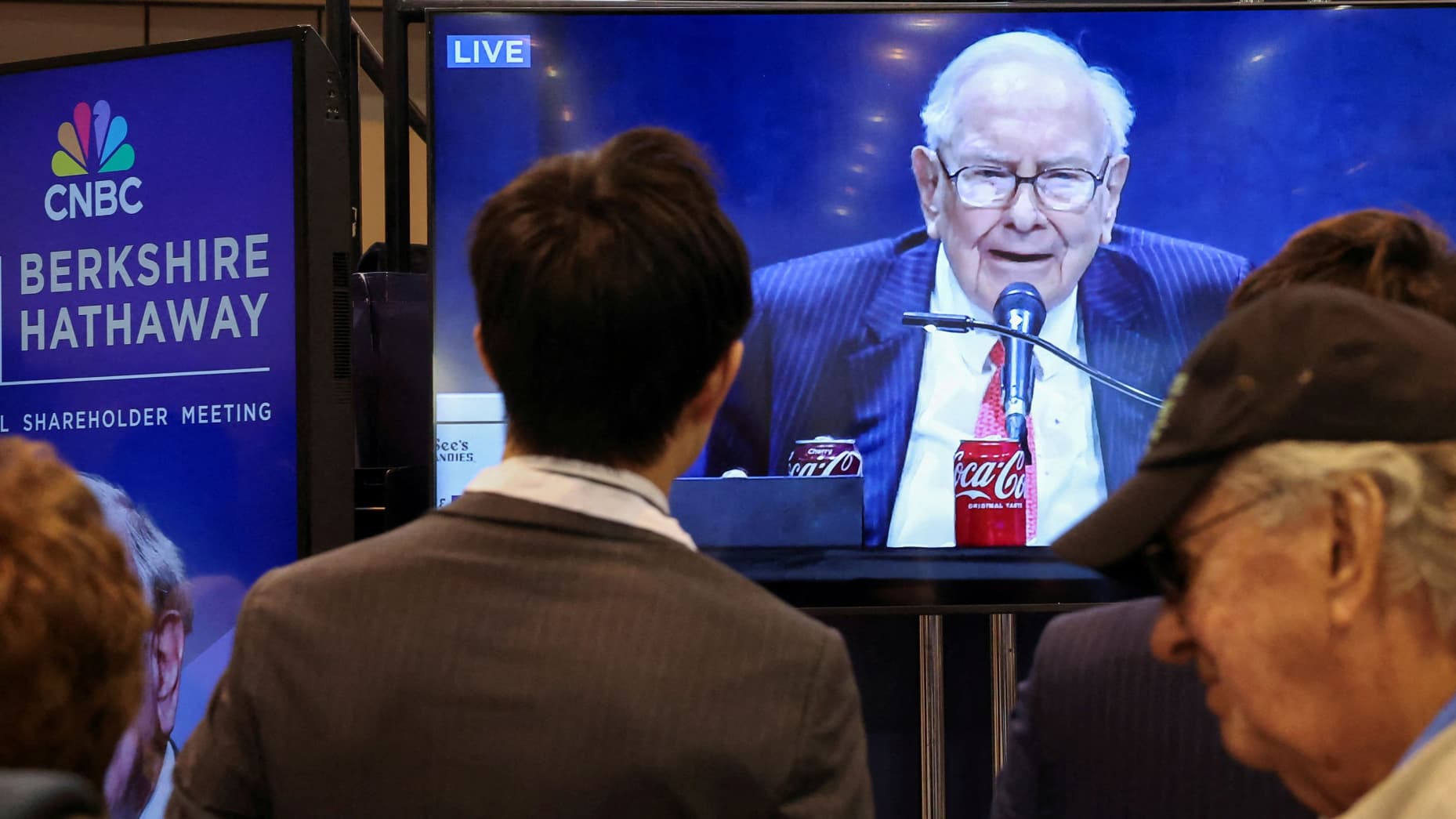
Warren Buffett is a legendary figure in the investment world, renowned for his unique investment philosophy and long-term value strategy, earning him the title of "Stock God." Under his leadership, Berkshire Hathaway has become one of the most respected financial enterprises globally. Recently, Buffett announced his plan to step down as CEO and retire during the company's annual meeting, a move that will inevitably cause significant turbulence in the financial markets.
Buffett's decision to retire as CEO will undoubtedly have profound implications for Berkshire Hathaway's future strategic development. According to available data, the company's current stock price largely reflects Buffett's deep market insights and precise investment decisions. Since news of his retirement plans became public, Berkshire Hathaway's stock price has already dropped by 5% in the short term. Buffett's departure signals a transition to new leadership, presenting unprecedented challenges for the company while also offering opportunities for strategic realignment. Over the years, Buffett's investment philosophy and decision-making style have become deeply ingrained in Berkshire Hathaway's culture. However, with the evolving market landscape—particularly the rise of tech stocks and global economic fluctuations—digital economy trends are shaping future growth. Berkshire Hathaway must now consider increasing investments in technology and innovation-driven enterprises while reassessing its existing portfolio and long-term strategic direction.
Following Buffett's announcement, financial markets immediately reacted with a downturn, highlighting investors' reliance on leadership and the sensitivity of financial markets to such changes. A similar scenario occurred when Apple's stock price temporarily declined after the passing of its visionary founder, Steve Jobs. Major leadership transitions often trigger market volatility, as investor confidence is closely tied to the leader's reputation. Buffett's personal brand is inextricably linked to Berkshire Hathaway's stock performance, and in the face of declining profitability, investors must reevaluate their portfolios to align long-term strategies with shifting market conditions.
After Buffett steps down as CEO, adjusting and optimizing Berkshire Hathaway's future investment strategy will be a critical focus. During his tenure, Buffett's core investment principle centered on long-term holdings of high-quality assets, a strategy that Berkshire Hathaway rigorously implemented. This approach delivered substantial returns over decades, cementing the company's status as a global financial leader. However, with changing market dynamics and impending leadership transitions, the long-term investment strategy must also adapt. The company should reassess its portfolio while maintaining its existing strengths, leveraging its capital and market influence to identify firms with long-term growth potential, thereby achieving diversified optimization.
Although Buffett's departure may cause short-term market turbulence, the long-term outlook for Berkshire Hathaway remains optimistic. The new management team will inherit Buffett's value investment philosophy while innovatively adapting it to current market conditions, preserving the core principles of value investing while embracing necessary changes.

Driven by the Trump administration's push to relax financial regulations and the recovery of investment banking business, the market value of the six major banks in the United States has cumulatively increased by approximately 600 billion US dollars by 2025.
Driven by the Trump administration's push to relax financia…
On Christmas evening, U.S. President Trump posted on social…
According to multiple foreign media reports, the recent fin…
The middle class, once regarded as the cornerstone of Ameri…
On December 19th local time, the US military launched a lar…
The Boxing Day sunshine should have cast a false glow of pr…